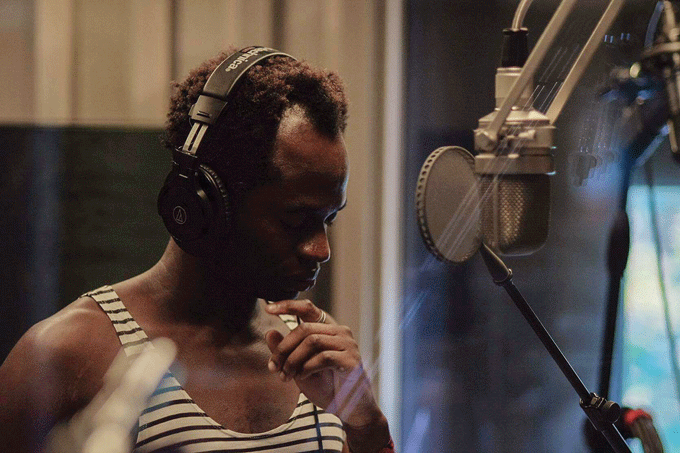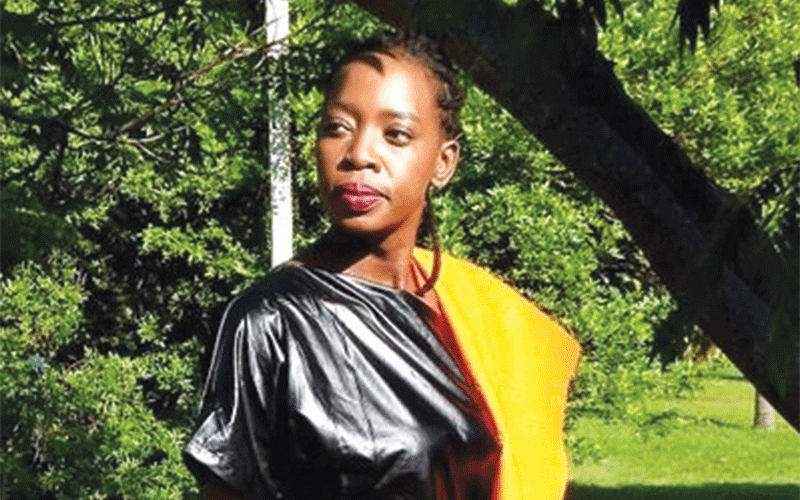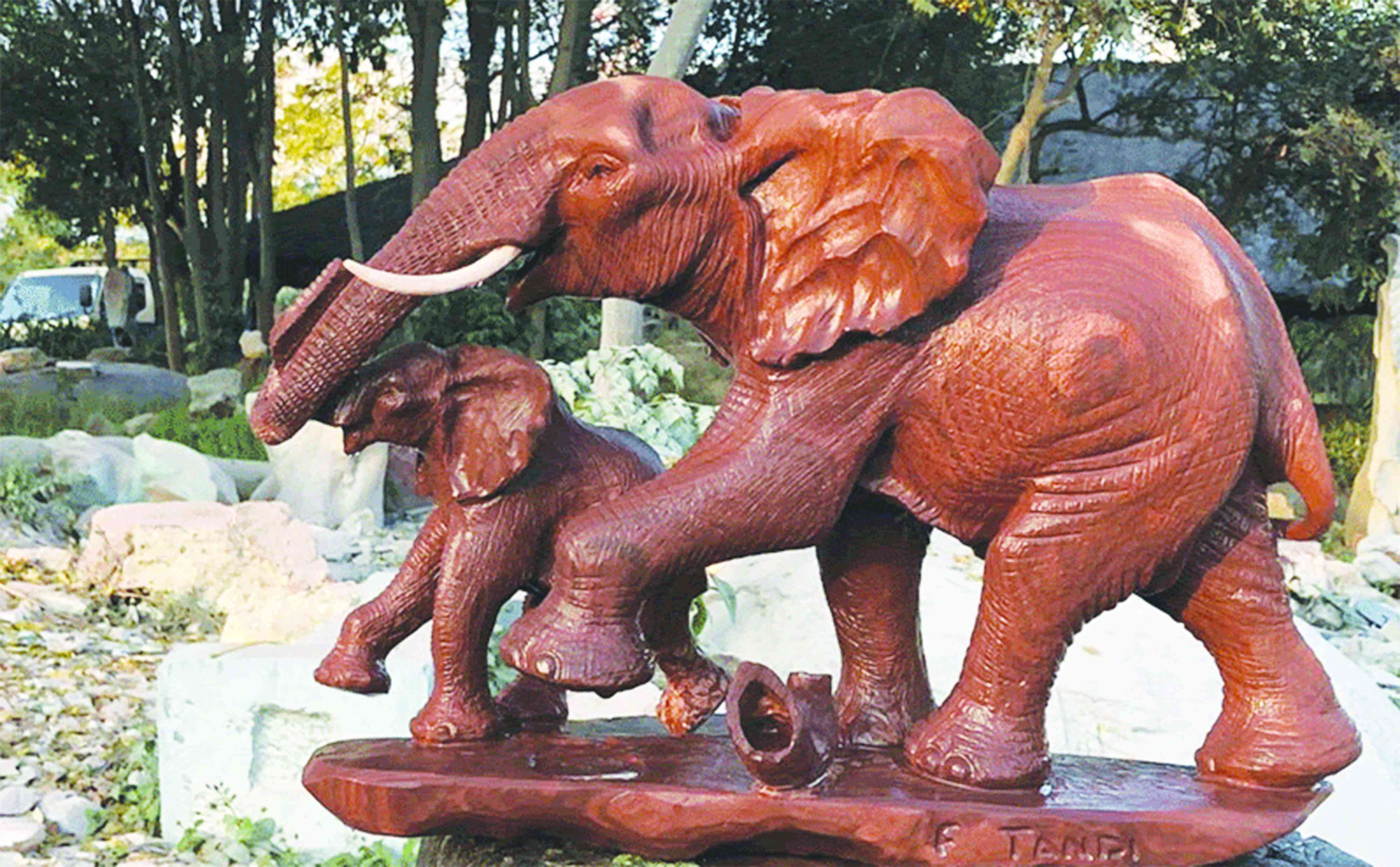
The first single from Figurine, the new album from Nigerian future-soul artist Wayne Snow, is called Seventy. The video that accompanies it features a strange alien form encountering a sun-drenched natural landscape.
In the first half of the video, the alien form explores the landscape of golden hues as if it is waking up to itself. Then the video suddenly shifts from oranges and reds to shades of blue.
The alien form begins to seep liquid into the earth and a human emerges from the pool. The human is waking from its alienation from itself.
“If you mean it / you will find what / you’ve been waiting / for a long time,” Snow sings, perfectly mirroring the visual transformation.
As an introduction to Figurine, the video is utterly captivating and symbolic of the journey that is about to unfold across Snow’s new album.
Snow is an artist whose music radiates warmth. This makes the video’s visual shift from golden hues to cold blues deeply symbolic of the gaze of this new album, which looks inward, in search of truth and honesty. The warmth may still be present, but Figurine is not afraid to confront colder, more complex emotions.
When Figurine was released in September on Paris-based label Roche Musique, Snow told Atwood Magazine that it explores the “masks of happiness” humans wear to hide their real selves.
“A figurine to me is a kind of static puppet on to which artificial emotions can be projected,” he said.
- Chamisa under fire over US$120K donation
- Mavhunga puts DeMbare into Chibuku quarterfinals
- Pension funds bet on Cabora Bassa oilfields
- Councils defy govt fire tender directive
Keep Reading
“These are still powerful, but they do not come from within.”
Figurine is a meditation on these self-constructed identities humans inhabit, a daringly vulnerable work of art born into a world drowning in performed happiness.
Growing in leaps and bounds
Snow, whose real name is Kesiena Ukochovbara, was born in Nigeria, raised in France and now lives in Germany. Growing up on a diet of Fela Kuti, Marvin Gaye, Miles Davis, Sade and King Sunny Adé, he made his debut under the name Wayne Snow in 2014 with the EP Red Runner on Copenhagen label Tartelet Records.
His debut album Freedom TV, which Tartelet released in 2017, earned the young Nigerian rave reviews. Highlights like Still in the Shell, Rosie and The Rhythm showcased his sound: an intersection of soul, house, hip-hop and 1970s jazz fusion.
While Freedom TV was a promising debut, few would have guessed that four years later, Snow would be back with an album as grand as Figurine.
According to Snow, Freedom TV was imagined for the dance floor while Figurine was made for his live band, which explains the massive shift between the two albums to some extent.
Snow’s debut felt like a club record that had wonderful touches of soul and jazz fusion, whereas Figurine feels like a soulful jazz fusion record with a few nods to the club. In principle, the raw material has not changed; it’s how they are combined to create new forms that makes the two albums so distinct.
On Figurine, the bass often still sounds designed for the dance floor, and the drums and percussion remain an intricate part of the mix, though a little less hard-hitting. The 1970s jazz fusion elements that could be heard on Freedom TV songs like Cooler and Fall are a lot more pronounced.
These changes may seem small, but listening to Freedom TV and Figurine back to back, it’s difficult to ignore the monumental stylistic leap that Snow has made.
It began with a written “manifesto” in 2018 in which Snow envisioned a world of sonic chaos created by synthetic machines.
It would take three years to make the manifesto a reality.
Augmenting the music
Snow collaborated with South African photographer and filmmaker Travys Owen to create the artwork and videos for Figurine, and the results are stunning.
Owen, whose work is known for its playful use of light and colour, brings an incredible visual world to Figurine.
This includes the album’s cover, which features a figurine bathed in a shimmering rich orange cloth against a lighter background, as well as the magnificent videos for its three singles, Seventy, Nina and The Thrill.
Snow says these videos are vital for a full understanding of the album and its message.
Nina, the second single, is a playful pop moment with a magnificent deep disco bassline, a hard-hitting beat and synth melodies.
The accompanying video is just as playful — a bold bright colourful work that explores the idea of striking poses or showing off different sides of oneself, as if saying the whole is just a collection of fragmented, contrasting pieces.
The subtle groove of the third single, The Thrill, is addictive; Prince would likely have nodded his head in approval if he were still with us. Its accompanying video is a gorgeous light show.
Unlike Seventy’s visuals, which depict Snow’s rebirth or transformation, or the video for Nina, which features various poses or sides to Snow’s personality, the visuals in The Thrill feature multiple versions of Snow at the same time, as if the fragmented pieces of his personality, once freed from the mask of happiness, have become more concrete.
“Change, yes, you’ve got tomorrow / Precious time where you can get your groove / All I want to say, yeah / Look in the mirror, oh baby / Look just how you move me,” sings Snow.
The cream of collaborators
Sitting in the producer’s chair for Figurine is 20-year-old Crayon. The Nigerian, whose real name is Charles Chibueze Chukwu, is credited on eight of the album’s 10 songs.
Crayon is signed to Don Jazzy’s Mavin Records and has been making a name for himself with songs like So Fine and Too Correct, which have more than five million and 1,5 million views on YouTube, respectively.
The Naples-based producer duo Nu Genea, who changed their name from Nu Guinea in June, return as collaborators on Figurine, having worked with Snow on the Freedom TV song Nothing Wrong.
They worked with Nigerian Afrobeat legend Tony Allen on their album The Tony Allen Experiments in 2016, and one listen to the drum pattern on Snow’s Silly Games clearly illustrates that they were paying attention.
The stuttering drums, sitting just behind the bass, are a perfect foil for the song’s gorgeous synth melody and Snow’s voice.
Faceless, the other song on which Nu Genea feature, builds from a vocal chant into a gorgeous torch song that seems to sit somewhere between neo-soul and gospel.
But the album’s highlight is the closing song Magnetic, which features rising United Kingdom jazz and soul star Oscar Jerome on guitar.
Magnetic begins as if Jerome was just noodling around in the studio and the tape was running, then it suddenly bursts into a warm, gentle psychedelic funk rhythm that repeatedly drops away, leaving segments of space-bound jazz fusion.
Then, just before the two-minute mark, the song switches gear, the drums become more propelled, synths swirl in the background and the bass begins to build in sheer force — until it all just drops away, leaving Snow singing over a bed of synths.
It’s a moment of utter magic and its position as the album’s finale suggests that Snow’s step up from promising artist to major artist is still in its embryonic stages, and we wait to see where the talented shapeshifter goes next. — New Frame











